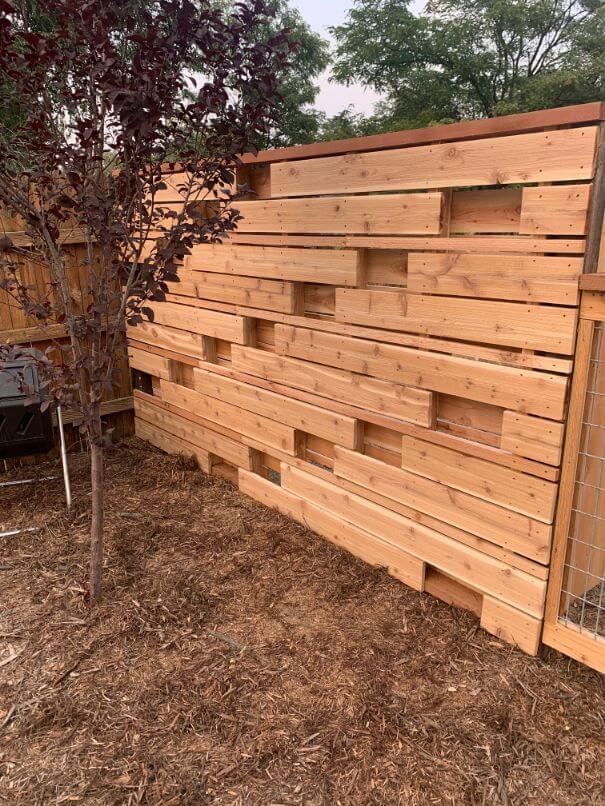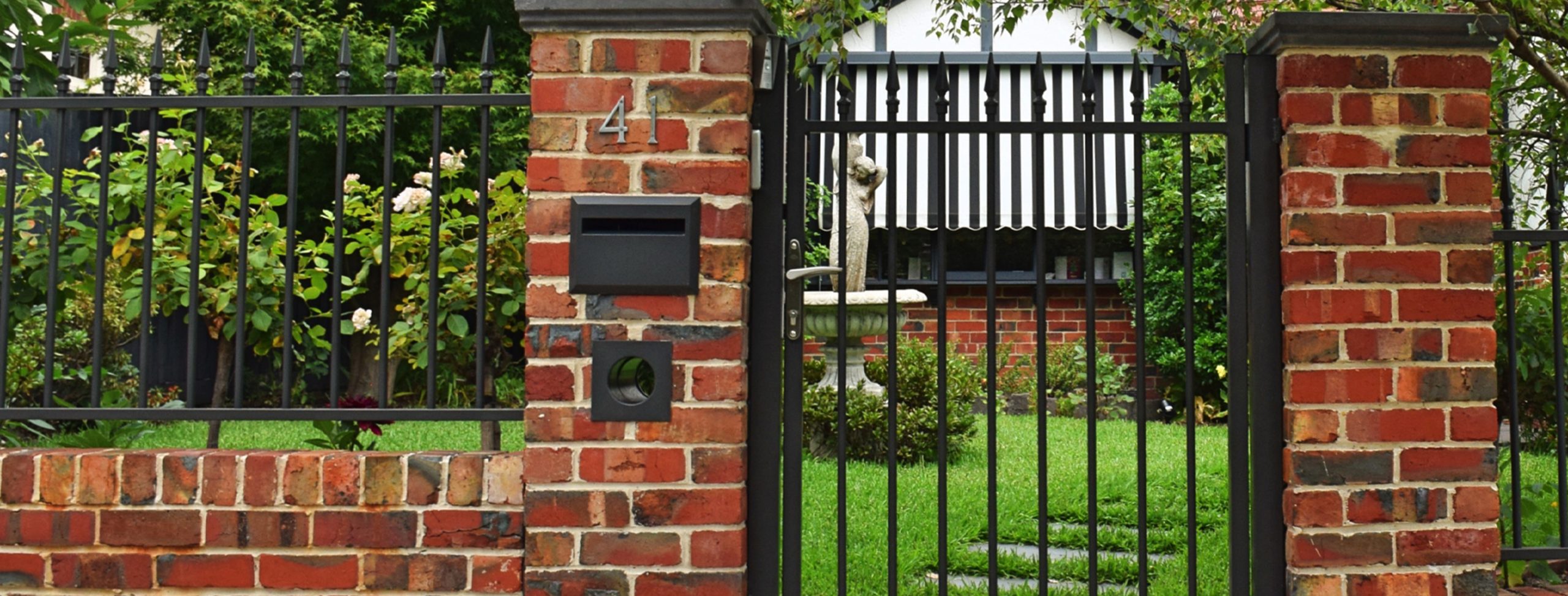All Categories
Featured

When it pertains to selecting a fencing that supplies both personal privacy and sound decrease, selecting the ideal materials is critical. Whether you're wanting to shut out the sounds of traffic, supply your lawn with more privacy, or merely boost your home's appearances, particular fencing materials carry out better than others. Allow's check out the very best alternatives for creating a personal, calm atmosphere.
- Wood Fence. Timber fencings are among one of the most prominent choices for property owners aiming to improve privacy and minimize sound. The density and density of timber supply an all-natural barrier that can take in sound effectively. Timber likewise provides flexibility in regards to style, enabling for solid, no-gap building and construction that aids block sound from the outside globe.
Best for: Homeowners searching for a traditional, rustic appearance while gaining from privacy and sound decrease. Upkeep: Timber fences need more maintenance than other products, consisting of staining or paint to safeguard them from the aspects. Normal sealing can also assist prevent rot and degeneration. Noise Decrease: Solid timber fencings work at wetting noise. A continuous, no-gap wood fencing functions best to obstruct audio, specifically when constructed with thicker slabs. 2. Vinyl Secure fencing. Plastic fences are a low-maintenance option to timber that still offers decent sound decrease and personal privacy. While plastic doesn't have the very same sound-dampening high qualities as wood, it does provide a strong surface that can block some outside sound. The added benefit of plastic is its resistance to weathering, deteriorating, and discoloration, making it a lasting choice.

Ideal for: Home owners who want a maintenance-free fencing that still supplies personal privacy and some noise decrease. Maintenance: Plastic requires really little upkeep. It's easy to tidy and does not fade or splinter, unlike wood. Sound Reduction: Strong vinyl fencings provide moderate audio reduction. While not as reliable as timber, they still help minimize the impact of road noise, especially when installed with tight-fitting panels. 3. Compound Fence. Compound fencings integrate the most effective functions of both wood and vinyl. Made from a mix of recycled timber fibers and plastic, composite fences are sturdy, low-maintenance, and much more immune to weather than wood. Their thickness enables them to obstruct sound efficiently, and they are much less prone to rot or fading compared to standard wood fences.
Finest for: Property owners who desire a long lasting, green option to wood with better efficiency than plastic. Maintenance: Compound fencings need marginal upkeep. They don't require to be painted or tarnished and can be quickly cleansed with soap and water. Sound Decrease: Because of their density, composite fences offer excellent noise reduction residential or commercial properties, similar to wood fencings, while giving a much longer life expectancy. 4. Stone or Block Walls. For those trying to find the supreme in privacy and noise stone, reduction or brick wall surfaces are unequaled. These heavy, solid frameworks act as exceptional and provide full personal privacy. Stone and brick are normally thick, and their mass assists to block both high and low-frequency noises from travelling through.
Finest for: Property owners who require maximum sound reduction and privacy, and who want to buy a more irreversible option. Upkeep: Stone or brick walls require minimal upkeep, with the occasional check for cracks or damage. They don't require painting or securing, which makes them a low-maintenance alternative over time. Noise Reduction: Rock or block is the most reliable alternative for noise reduction. Their thickness and strength produce an impenetrable obstacle against sound, making them optimal for areas near noisy atmospheres or hectic streets. 5. Steel Fencing with Acoustic Panels. While metal fences like light weight aluminum or steel are typically not as efficient in soundproofing, they can be boosted with acoustic panels to enhance noise decrease. The combination of sturdy steel and soundproofing products supplies a sleek and modern option for those wanting to block sound while keeping a modern visual.
Finest for: Property owners that want a modern-day, sturdy fence with boosted soundproofing capacities. Maintenance: Metal fencings call for really little maintenance, though they may need corrosion avoidance in areas with high moisture or salt exposure. Sound Decrease: When coupled with acoustic panels or soundproofing foam, steel fences can significantly lower noise. The panels assist soak up audio, while the metal structure gives durability and safety and security. 6. Plant or Living Fencings. For a natural option, living fencings, such as dense hedges or thick greenery, can help soak up audio and supply a sense of personal privacy. While not as efficient as strong obstacles like timber or stone, well-maintained plants like privet, bamboo, or cypress can assist minimize the impact of noise, specifically in even more country or country areas.

Ideal for: Homeowners who want a natural, environment-friendly privacy fence that mixes with the landscape. Maintenance: Plant fences require regular cutting and like guarantee they stay healthy and balanced and dense. They can additionally be susceptible to parasites or condition. Sound Decrease: While not as reliable as solid fences, thick hedges can still supply some sound decrease, especially for high-frequency audios. Conclusion. When it comes to creating a silent and personal room, the ideal secure fencing products for sound decrease and privacy consist of timber, composite, block, plastic, and rock. Plastic fencings are low-maintenance and can minimize noise, though not as effectively as wood.
Choosing the best product depends upon your budget plan, wanted aesthetic, and the degree of privacy and noise decrease you need. Whichever material you choose, purchasing a top quality, well-built fence will certainly improve your home's privacy and convenience while lowering unwanted sound.
Latest Posts
Discover Reduce Expenses on Car Maintenance with Montclare Auto Repair’s Limited-Time Deals
Published en
1 min read
Explore Auto Services & More: Complete Auto Care Solutions from Montclare Auto Repair
Published en
1 min read
Check Out Exceptional Auto Repair Care from Montclare Auto Repair – Quality Service Today
Published en
1 min read
More
Latest Posts
Discover Reduce Expenses on Car Maintenance with Montclare Auto Repair’s Limited-Time Deals
Published May 30, 25
1 min read
Explore Auto Services & More: Complete Auto Care Solutions from Montclare Auto Repair
Published May 27, 25
1 min read
Check Out Exceptional Auto Repair Care from Montclare Auto Repair – Quality Service Today
Published May 26, 25
1 min read